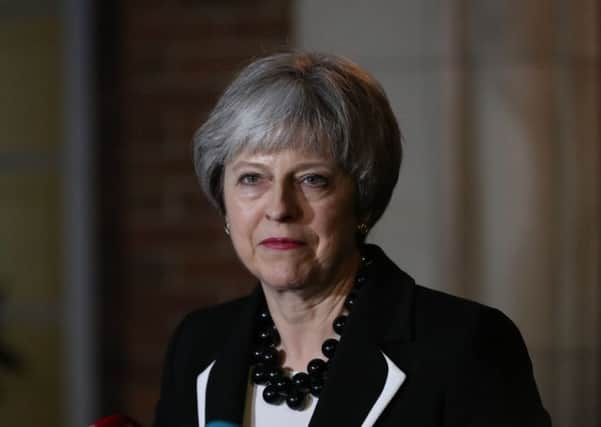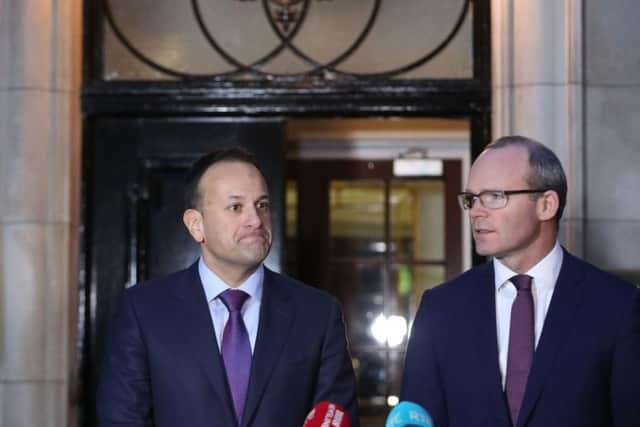May sidesteps question on SF and Coveney sidesteps question on language


The News Letter asked the prime minister about the concern among unionists that one party — Sinn Fein — has been allowed to hold the political process to a ransom and the Irish deputy prime minister about Dublin’s past insistence on an Irish language act.
We asked Theresa May: “Our readership is mostly unionist and there is a large feeling within unionism that Sinn Fein have been allowed to bring the process to a halt for 13 months.
Advertisement
Hide AdAdvertisement
Hide Ad“Do you have any thoughts on that nervousness that there is amongst many people Northern Ireland?”


The prime minister replied: “I think both sides, both the DUP and Sinn Fein, have been working hard over the last 13 months, I think we have seen them coming together, recognising we all want to see the executive reformed here in Northern Ireland, I think that is the best solution for the people here in Northern Ireland.”
Mrs May added: “As I say some differences do remain, we have seen a lot of hard work to close the gaps.
“But I think that there is the basis of an agreement, and I think it is important obviously as we look forward to ensure the sustainability of the executive that the DUP and Sinn Fein are able to come to that agreement themselves and be able to take that forward.”
Advertisement
Hide AdAdvertisement
Hide AdThe News Letter also put a question to Simon Coveney, the Irish deputy prime minister, about Dublin’s stance on an Irish language act.


We asked him: “You said that Dublin considered an Irish language act to be an inevitable part of the mix. Is that still the Irish position?”
He replied: “Look I don’t think it is helpful to talk about specific issues while two parties are trying to find accommodation with each other on a whole series of issues.”
Mr Coveney added: “I think we’ve, particularly over the last number of weeks, we’ve really, as two governments, not commented publicly on the detail of the negotiations because it is sensitive, it is difficult, and the parties are genuinely trying in my view to find a way forward, have been involved in understanding each other’s positions, so I don’t think it would be helpful to comment on that detail right now.”
Advertisement
Hide AdAdvertisement
Hide AdMr Coveney continued: “Instead I think it is up to the parties to comment themselves, both internally within their own decision making systems, which has been happening, and I heard positive commentary from the leadership of both the DUP and Sinn Fein today so let’s build on that and hopefully we can get a deal before the end of the week.”